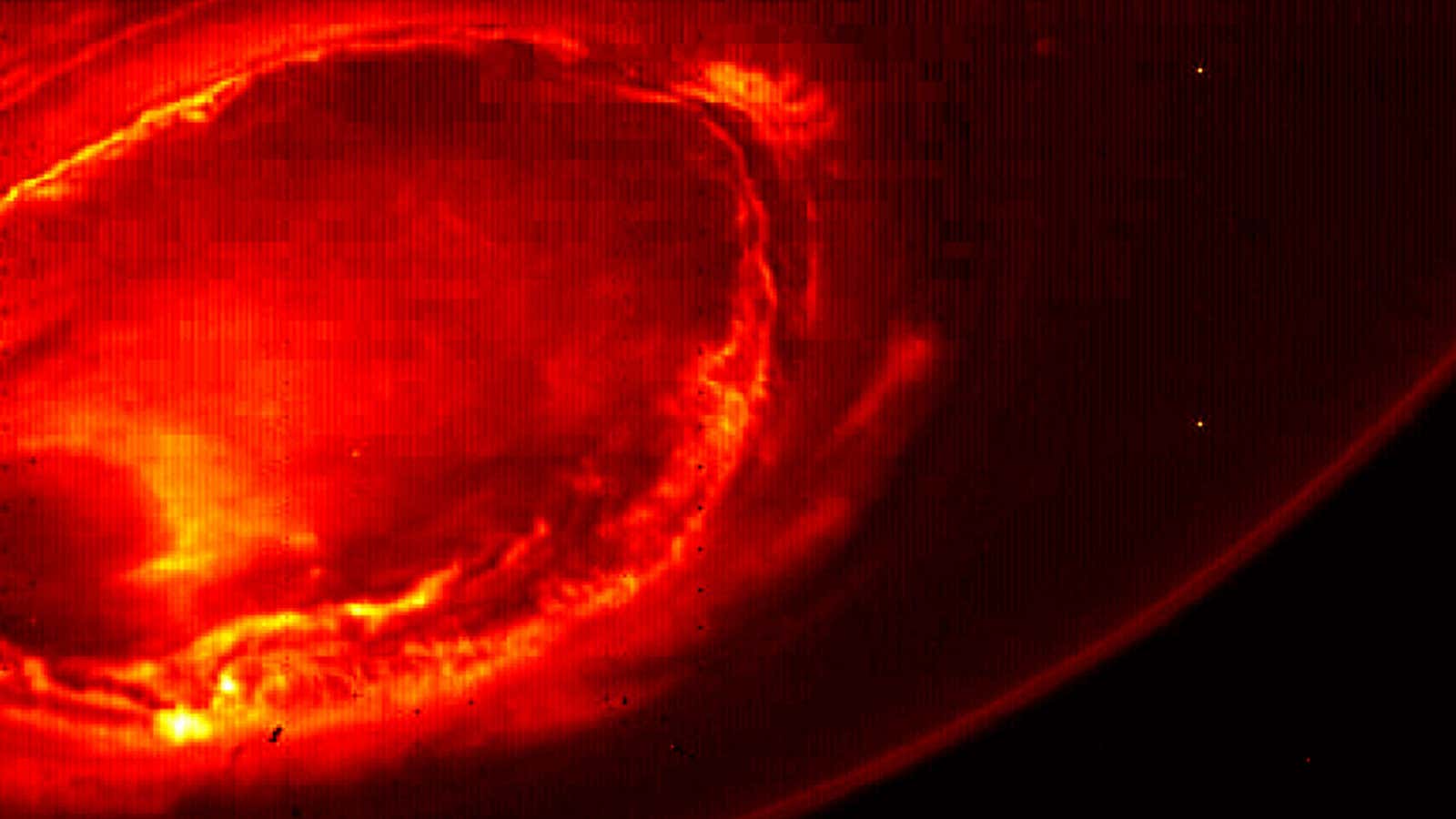One of Russia’s international state broadcasters, which reports in over 30 languages, seems to have found a new beat: aliens.
Despite its name, Sputnik News doesn’t typically focus on extraterrestrial life. But the organization, which targets only foreign audiences with text and radio content, unleashed a stream of stories on the subject recently, with one apparent scoop detailing a supposed UFO sighting over Yellowstone National Park in Wyoming:
“Chilling footage reveals several large UFOs flying over the gigantic Yellowstone super-volcano which alien hunters now suggest may be an alien base,” led the article, published on Aug. 28.
Other items included an alleged NASA cover-up of a “mysterious ‘alien’ cube” apparently found floating near the earth, an “alien mothership whizzing over London”, and “strange lights” filmed near the International Space Station.
Why is the Kremlin spending money on such reporting? The answer requires an explanation of the Russian state media’s geopolitical role.
Alongside Russia’s TV channel RT, Sputnik acts as a spoiler to try and disrupt or blur information unfriendly to Russia, such as Russian troops’ widely alleged involvement in the war in Ukraine, according to Kevin Rothrock, Russia editor for Global Voices, a non-profit that analyses and blogs on international media.
“When Ukraine was world news, they were leading the way in either spreading conspiracy theories or debunking theories that Russia was responsible for various things,” Rothrock said. “They have a pretty overt mission basically to either skew or dirty the waters.”
When Sputnik launched in 2015, its chief Dimitry Kiselyov said the service would aim to fight “aggressive propaganda that is now being fed to the world.” The agency’s slogan: “Sputnik tells the untold.”
But to maintain a web audience like so many other digital outlets, the agency needs to generate traffic. So it has carved a niche among people in what Rothrock calls the “peripheries”–in this case, alien hunters.
The website did not immediately respond to emailed requests for comment.
These aren’t the only bizarre space stories to come from Russia in the last few weeks–a radio astronomy observatory in southern Russia caused a frenzy at the end of August when it observed a signal many thought could be intelligent alien life. It did turn out to be from intelligent life but not as hoped: It originated on earth. That didn’t stop America’s own news organizations going crazy for it:
Meanwhile, Russian alien hunting also goes on at a more serious level, with billionaire Yuri Milner joining Stephen Hawking and Mark Zuckerberg to invest hundreds of millions in a project to find intelligent life by flying to distant galaxies.




